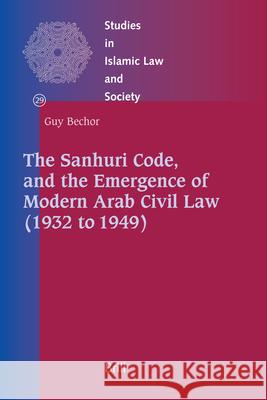The Sanhuri Code, and the Emergence of Modern Arab Civil Law (1932 to 1949) » książka
The Sanhuri Code, and the Emergence of Modern Arab Civil Law (1932 to 1949)
ISBN-13: 9789004158788 / Angielski / Twarda / 2007 / 344 str.
The Sanhuri Code, and the Emergence of Modern Arab Civil Law (1932 to 1949)
ISBN-13: 9789004158788 / Angielski / Twarda / 2007 / 344 str.
(netto: 639,43 VAT: 5%)
Najniższa cena z 30 dni: 672,98
ok. 30 dni roboczych
Bez gwarancji dostawy przed świętami
Darmowa dostawa!
Dr. 'Abd al-Razzāq al-Sanhūrī (1895-1971) is one of the most prominent jurists to emerge to date in the Arab world. His alarm at the growing social gap in his country, Egypt, during the first half of the twentieth century, fueled his vision of establishing moral social order by means of a new civil code. Although Sanhūrī's chosen tool was the legal text, this book argues that his vision was essentially a social one: to introduce the principles of compassion, solidarity and fairness, alongside progress and pragmatism, into polarized Egyptian society, whereby property laws acquired a social function, the laws of partnership were perceived as having an educational value, and contract law was activated as a balance favoring the weaker members of society. Accordingly, this book examines the drafting of the Egyptian Civil Code, exposing the hitherto unknown sociological strata of this act of legislation.











